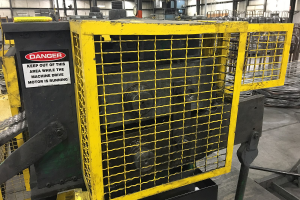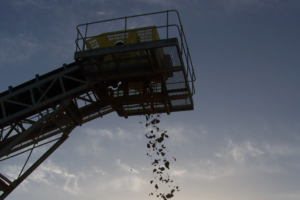Another chapter in dispute over OSHA statute of limitations
Today’s guest blogger is Andrew R. Kaake, an attorney practicing in Cincinnati. Contact him at andrewrkaake@gmail.com.
If you are reading this blog, you likely already know that the Occupational Safety and Health Act contains a six-month statute of limitations for the issuance of citations. You may also know that in AKM, LLC v. OSHRC (also known as the “Volks” decision), the federal Court of Appeals for the D.C. Circuit held that the Act means exactly what it says – that is, the statute of limitations bars citations for alleged violations that occurred any more than six months prior to the citations being issued.
In AKM, the Court of Appeals explicitly rejected OSHA’s argument that the limitations period should be extended because the violations were “continuing.” In rejecting this “continuing violation” theory, the Court of Appeals stated that OSHA’s argument would have the “absurd consequence” of allowing the agency to extend the statute of limitations indefinitely, which the court found to be “madness” and directly contrary to the plain language of the Act.
Despite AKM’s very clear pronouncement that OSHA is barred from issuing citations more than six months after an alleged violation has occurred, the Occupational Safety and Health Review Commission recently upheld citations against a Texas refinery for alleged violations of the Process Safety Management standard that occurred years before the inspection and at a time when the refinery was under different ownership. In Secretary of Labor v. Delek Refining, Ltd., the Review Commission held that the employer’s failure to act on recommendations made in a prior employer’s Process Hazard Analyses (some of which dated back more than 14 years before the OSHA inspection) constituted a “continuing violation” that effectively extended the statute of limitations under the Act.
Background
Delek Refining purchased a refinery located in Tyler, Texas, from Crown Central on April 29, 2005. Prior to the purchase by Delek, Crown had conducted a number of Process Hazard Analyses as consistent with its obligations under the Process Safety Management standard. Those PHAs were conducted in 1994, 1998, 1999, 2004, and 2005. Although Crown represented to Delek that all of the issues identified in the PHAs had been corrected, in actuality, roughly 16 out of 101 recommended corrections had not been addressed.
On February 19, 2008, OSHA began an inspection of the facility under its National Emphasis Program for Process Safety Management in Refineries. After a nearly four-month inspection, OSHA cited Delek for a number of alleged violations of the PSM standard, including two citations for failing to promptly address and correct deficiencies identified in the PHAs conducted by the prior owner.
Delek contested the citations, arguing that it had no knowledge of the alleged deficiencies and, even if it did, it was under no obligation to accept and correct alleged problems identified in PHAs done long before it owned the facility. The Administrative Law Judge who conducted the hearing disagreed, finding that “it was not reasonable for Delek, as the new owner, to simply rely on Crown’s representation and to not even look at the prior PHAs…”
The Review Commission’s Decision
Delek appealed the decision to the Review Commission. In its appeal, Delek asserted that the Court of Appeals decision in AKM (decided after the administrative law judge issued his opinion) clearly established that OSHA cannot issue citations for alleged violations that occurred more than six months earlier. The Review Commission rejected Delek’s argument, finding that the Court of Appeals’ decision in AKM was distinguishable.
The Review Commission concluded that Delek’s failure to follow-up and take action to correct items identified in prior PHAs was much different than the recordkeeping violations alleged in AKM. The Commission held that “[Delek] overlooks the distinction the AKM court drew between ‘discrete record-making violations,’ which qualify as ‘occurrences’ that trigger the statute of limitations and instances where ‘a company continues to subject its employees to unsafe….situations,’ which toll the statute of limitations on a continuing violation theory.” Simply put, the Review Commission believed that Delek’s failure to correct items identified in prior PHAs meant that the hazards posed by those deficiencies continued to exist and to pose an ongoing risk to employees at the refinery. As such, the violations were “continuing” and could be cited by OSHA long after the six month limitation period has passed.
Commissioner Heather MacDougall wrote a scathing dissenting opinion pointing out the flaws in the majority’s decision. MacDougall first pointed out that Delek should not automatically be assumed to be responsible for the actions/inaction of the prior owner. As she noted, there is no common sense reading of the PSM standard that would require an employer to accept and be responsible for the PHAs conducted by a facility’s prior owner.
More importantly, MacDougall found that the Court of Appeals’ decision to reject the recordkeeping citations in AKM applied with equal force to the PSM citations issued to Delek. MacDougall explained that OSHA’s attempt to extend the statute of limitations for PSM violations runs directly contrary to AKM’s holding that “the lingering effect of an unlawful act is not itself and unlawful act, and that the mere failure to right a wrong….cannot be a continuing wrong which tolls the statute of limitations, for if it were, the exception would obliterate the rule.”
Takeaways
Whether or not you find the decision in Delek to be absurd and illogical, it is currently the “law of the land.” With that in mind, employers (particular those with operations covered by the PSM standard) should:
- Ensure that any recommendations made or hazards identified in any type of safety audit are followed up on and/or corrected. Safety audits are only as good as the follow up. In fact, the alleged deficiencies cited by OSHA in Delek were based largely upon a spreadsheet that Delek itself created and provided to OSHA.
- Be aware that your company may be held liable for the transgressions of a prior owner. In light of this, employers acquiring new operations or facilities should conduct a careful and thorough review of safety procedures, policies, and prior safety-related audits and develop and act upon a plan to address any safety concerns prior to the acquisition; and
- Recognize that, although it is expressly set out in the Act, the six month statute of limitations is, by no means, a “silver bullet” defense to citations. OSHA and its compliance officers will always be looking for ways to argue that violations are “continuing” and, therefore, subject to citation long after the alleged violation occurred.


